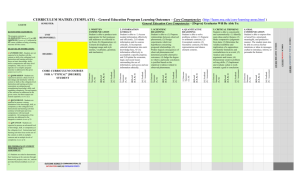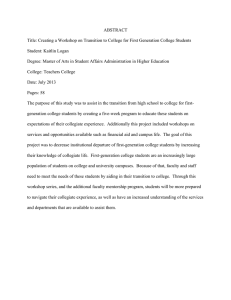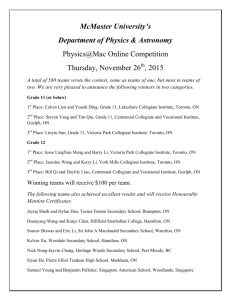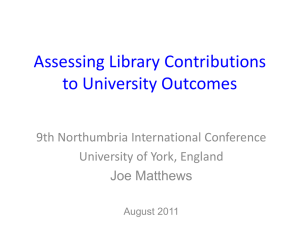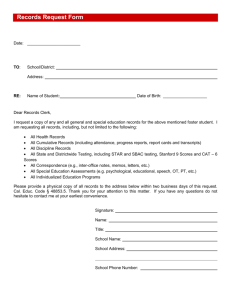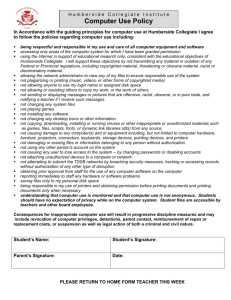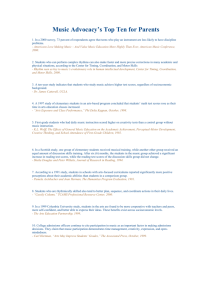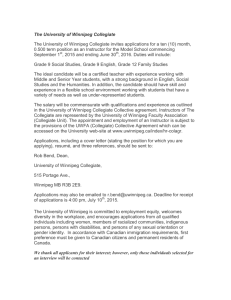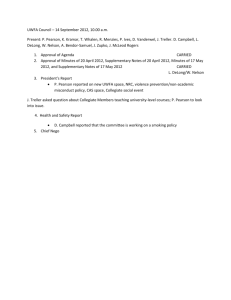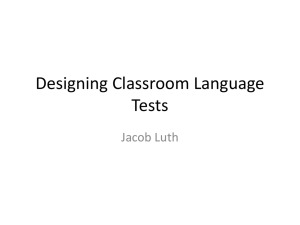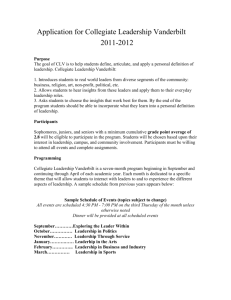Template -- QEP R.E.A.S.O.N. Outcomes
advertisement
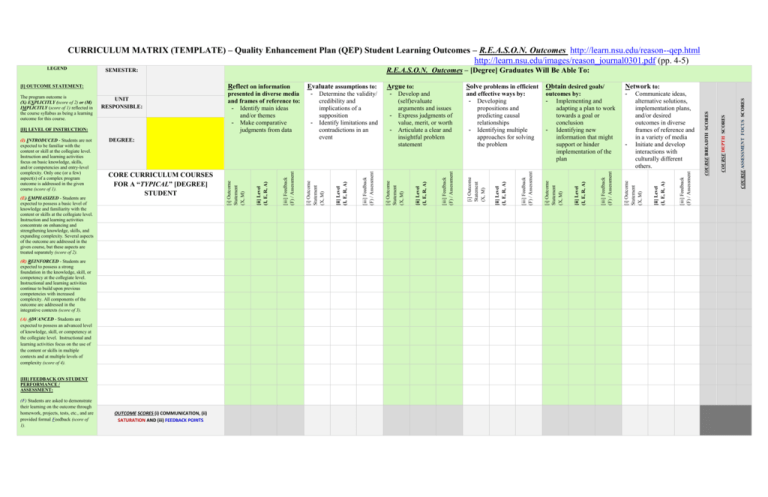
CURRICULUM MATRIX (TEMPLATE) – Quality Enhancement Plan (QEP) Student Learning Outcomes – R.E.A.S.O.N. Outcomes http://learn.nsu.edu/reason--qep.html http://learn.nsu.edu/images/reason_journal0301.pdf (pp. 4-5) (R) REINFORCED - Students are expected to possess a strong foundation in the knowledge, skill, or competency at the collegiate level. Instructional and learning activities continue to build upon previous competencies with increased complexity. All components of the outcome are addressed in the integrative contexts (score of 3). (A) ADVANCED - Students are expected to possess an advanced level of knowledge, skill, or competency at the collegiate level. Instructional and learning activities focus on the use of the content or skills in multiple contexts and at multiple levels of complexity (score of 4). [III] FEEDBACK ON STUDENT PERFORMANCE / ASSESSMENT: (F) Students are asked to demonstrate their learning on the outcome through homework, projects, tests, etc., and are provided formal Feedback (score of 1). OUTCOME SCORES (i) COMMUNICATION, (ii) SATURATION AND (iii) FEEDBACK POINTS COURSE ASSESSMENT FOCUS SCORES COURSE DEPTH SCORES COURSE BREADTH SCORES [iii] Feedback (F) / Assessment [ii] Level (I, E, R, A) - Communicate ideas, alternative solutions, implementation plans, and/or desired outcomes in diverse frames of reference and in a variety of media Initiate and develop interactions with culturally different others. [i] Outcome Statement (X, M) [iii] Feedback (F) / Assessment - [ii] Level (I, E, R, A) Network to: outcomes by: - Implementing and adapting a plan to work towards a goal or conclusion - Identifying new information that might support or hinder implementation of the plan [i] Outcome Statement (X, M) Obtain desired goals/ and effective ways by: - Developing propositions and predicting causal relationships - Identifying multiple approaches for solving the problem [iii] Feedback (F) / Assessment - Solve problems in efficient [ii] Level (I, E, R, A) - Develop and (self)evaluate arguments and issues Express judgments of value, merit, or worth Articulate a clear and insightful problem statement [iii] Feedback (F) / Assessment - [i] Outcome Statement (X, M) Argue to: [ii] Level (I, E, R, A) - Determine the validity/ credibility and implications of a supposition Identify limitations and contradictions in an event [i] Outcome Statement (X, M) CORE CURRICULUM COURSES FOR A “TYPICAL” [DEGREE] STUDENT [iii] Feedback (F) / Assessment (E) EMPHASIZED - Students are expected to possess a basic level of knowledge and familiarity with the content or skills at the collegiate level. Instruction and learning activities concentrate on enhancing and strengthening knowledge, skills, and expanding complexity. Several aspects of the outcome are addressed in the given course, but these aspects are treated separately (score of 2). DEGREE: [ii] Level (I, E, R, A) (I) INTRODUCED - Students are not expected to be familiar with the content or skill at the collegiate level. Instruction and learning activities focus on basic knowledge, skills, and/or competencies and entry-level complexity. Only one (or a few) aspect(s) of a complex program outcome is addressed in the given course (score of 1). - [iii] Feedback (F) / Assessment [II] LEVEL OF INSTRUCTION: Evaluate assumptions to: [ii] Level (I, E, R, A) UNIT RESPONSIBLE: presented in diverse media and frames of reference to: - Identify main ideas and/or themes - Make comparative judgments from data [i] Outcome Statement (X, M) Reflect on information [I] OUTCOME STATEMENT: The program outcome is (X) EXPLICITLY (score of 2) or (M) IMPLICITLY (score of 1) reflected in the course syllabus as being a learning outcome for this course. R.E.A.S.O.N. Outcomes – [Degree] Graduates Will Be Able To: SEMESTER: [i] Outcome Statement (X, M) LEGEND
